| |||||
| Decades: | |||||
|---|---|---|---|---|---|
The following lists events that happened during 1895 in the Congo Free State .
| |||||
| Decades: | |||||
|---|---|---|---|---|---|
The following lists events that happened during 1895 in the Congo Free State .
| Date | Event |
|---|---|
| January | The garrison of Luluabourg mutinies in response to the execution of the warlord Gongo Lutete for treachery during the war against the Arabs. [1] |

Leopold II was the second King of the Belgians from 1865 to 1909, and the founder and sole owner of the Congo Free State from 1885 to 1908.

The Congo Free State, also known as the Independent State of the Congo, was a large state and absolute monarchy in Central Africa from 1885 to 1908. It was privately owned by King Leopold II, the constitutional monarch of the Kingdom of Belgium. In legal terms, the two separate nations were in a "personal union". The Congo Free State was not a part of, nor did it belong to Belgium. Leopold was able to seize the region by convincing other European states at the Berlin Conference on Africa that he was involved in humanitarian and philanthropic work and would not tax trade. Via the International Association of the Congo, he was able to lay claim to most of the Congo Basin. On 29 May 1885, after the closure of the Berlin Conference, the king announced that he planned to name his possessions "the Congo Free State", an appellation which was not yet used at the Berlin Conference and which officially replaced "International Association of the Congo" on 1 August 1885. The Free State was privately controlled by Leopold from Brussels; he never went there.
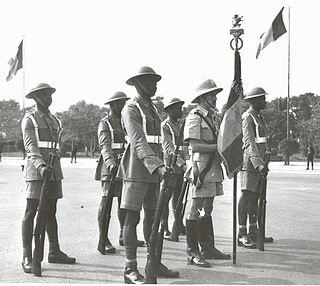
The Force Publique was a gendarmerie and military force in what is now the Democratic Republic of the Congo from 1885, through the period of Belgian colonial rule. The FP was retitled as the Congolese National Army or ANC in July 1960 after independence.
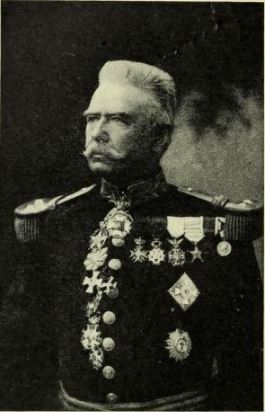
Lieutenant-General Baron Théophile Wahis was a Belgian soldier and colonial civil servant who served as Governor-General of the Congo Free State and, subsequently, the Belgian Congo for two terms between 1891 and 1912. He was the longest ruling of Belgian colonial governors.
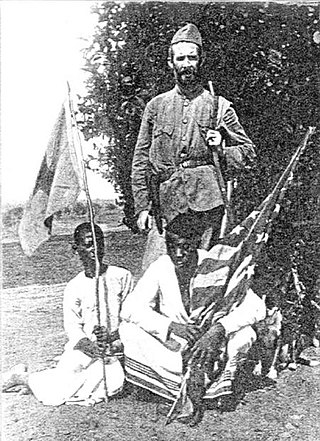
Richard Dorsey Loraine Mohun was an American explorer, diplomat, mineral prospector and mercenary. Mohun worked for the United States government as a commercial agent in Angola and the Congo Free State. During his time as commercial agent, he volunteered to command a unit of Belgian artillery in a campaign to force Arab slavers from the colony.

The Batetela rebellion was a series of three military mutinies and a subsequent low-level insurgency which was attributed to members of the Tetela ethnic group in the Congo Free State between 1895 and 1908.

Lualaba District was a district of the pre-2015 Katanga Province in the Democratic Republic of the Congo. The district dates back to the days of the Congo Free State and the Belgian Congo. The original Lualaba District was merged into Katanga in 1910, but in 1933 a new Lualaba District was formed within Katanga. After various significant boundary changes, in 2015 the district became the western part of the present Lualaba Province.

Cataractes District was a district located in the Kongo Central province, in the Democratic Republic of the Congo. It dated back to the days of the Congo Free State and the Belgian Congo.
The Livingstone Inland Mission (LIM) was an evangelical missionary society that operated in what is now the Democratic Republic of the Congo between 1878 and 1884.
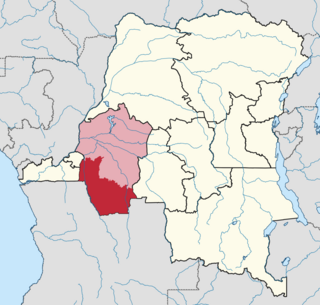
Kwango District was a district of the Congo Free State, Belgian Congo and the Democratic Republic of the Congo. It went through various changes in extent. It roughly corresponded to the present provinces of Kwilu and Kwango.
Lewis Henry Gann (1924–1997) was a historian, political scientist and archivist in the United States. He researched African history and specialized in the history of Central Africa in colonial era, writing a number of works in collaboration with Peter Duignan. He also worked on aspects of the history of the United States, European history, and plural societies.

In the period from 1885 to 1908, many atrocities were perpetrated in the Congo Free State which, at the time, was a state under the absolute rule of King Leopold II of the Belgians. These atrocities were particularly associated with the labour policies used to collect natural rubber for export. Together with epidemic disease, famine, and a falling birth rate caused by these disruptions, the atrocities contributed to a sharp decline in the Congolese population. The magnitude of the population fall over the period is disputed, with modern estimates ranging from 1.5 million to 13 million.
The Archives Africaines of the Belgian Federal Public Service Foreign Affairs in Brussels contains records related to colonial Congo Free State, Belgian Congo and Ruanda-Urundi, 1885-1962. The archives was transferred in 1960 to the Ministère belge des Affaires étrangères. In 2015 the archives went to the Belgian State Archives, an arrangement expected to continue until 2018. The Archives Africaines includes "the archives of the former Ministry for Colonies, the archives of the Governor-General of the Congo, and the files on former colonial personnel ."
The Baptist Community of Congo is a Baptist Christian denomination in Democratic Republic of the Congo. It is affiliated with the Church of Christ in the Congo, and the Baptist World Alliance. The headquarters is in Kinshasa.
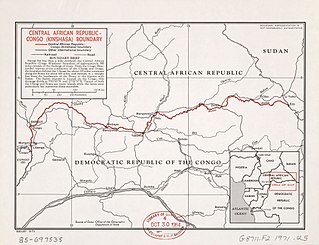
The Central African Republic–Democratic Republic of the Congo border is 1,747 km in length and runs from the tripoint with the Republic of the Congo in the west to the tripoint with South Sudan in the east.
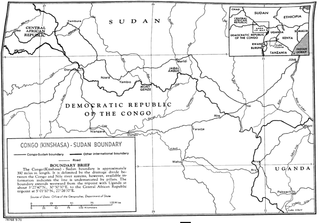
The Democratic Republic of the Congo–South Sudan border is 714 km in length and runs from the tripoint with the Central African Republic in the west to the tripoint with the Uganda in the east.
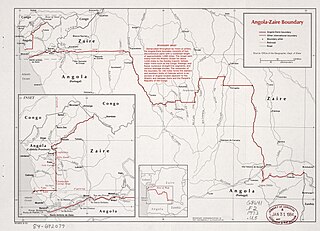
The Angola–Democratic Republic of the Congo border is 2,646 km in length and consists of two non-contiguous sections: a 225 km section along the border with Angola's province of Cabinda, running from the Atlantic Ocean to the tripoint with the Republic of Congo, and a much longer 2,421 km section running from the Atlantic to the tripoint with Zambia.
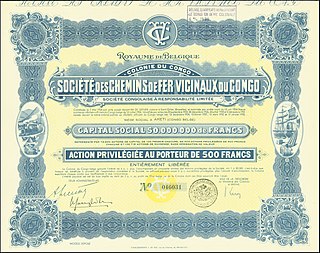
The Société des Chemins de Fer Vicinaux du Congo, known as CVC or Vicicongo, was a railway company that operated the narrow gauge Vicicongo line and provided trucking services in the northeast Belgian Congo, and then in the Democratic Republic of the Congo between 1924 and 1974. It provided transport for agricultural goods produced in the northeast that were shipped on the Congo River to Léopoldville (Kinshasa). After independence in 1960 there were civil disturbances and the railway was poorly maintained. The company was taken over by the state in 1974. Later there were further disturbances in which the stations were destroyed and the rolling stock used as a source of metal. The track is decrepit and no longer usable.